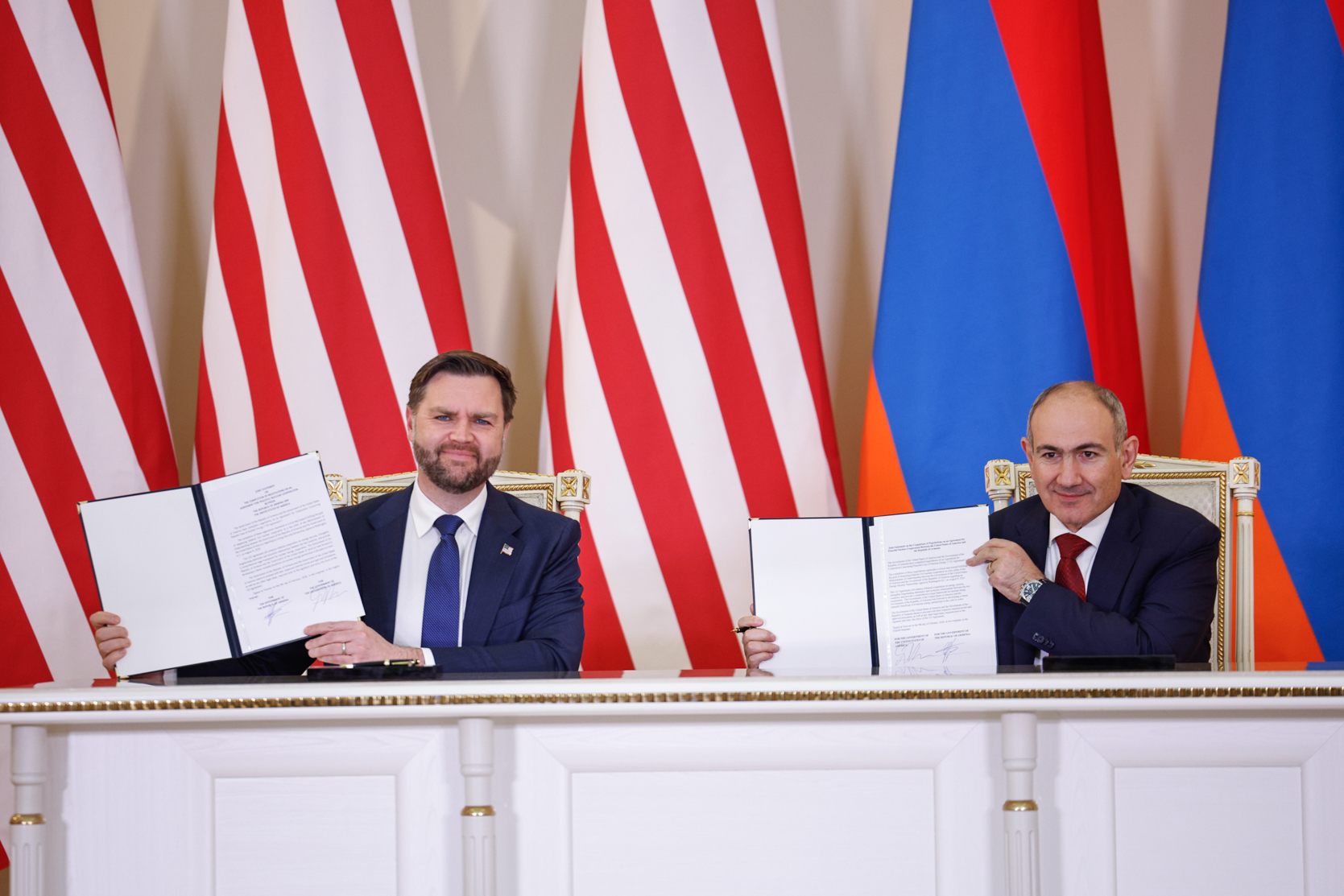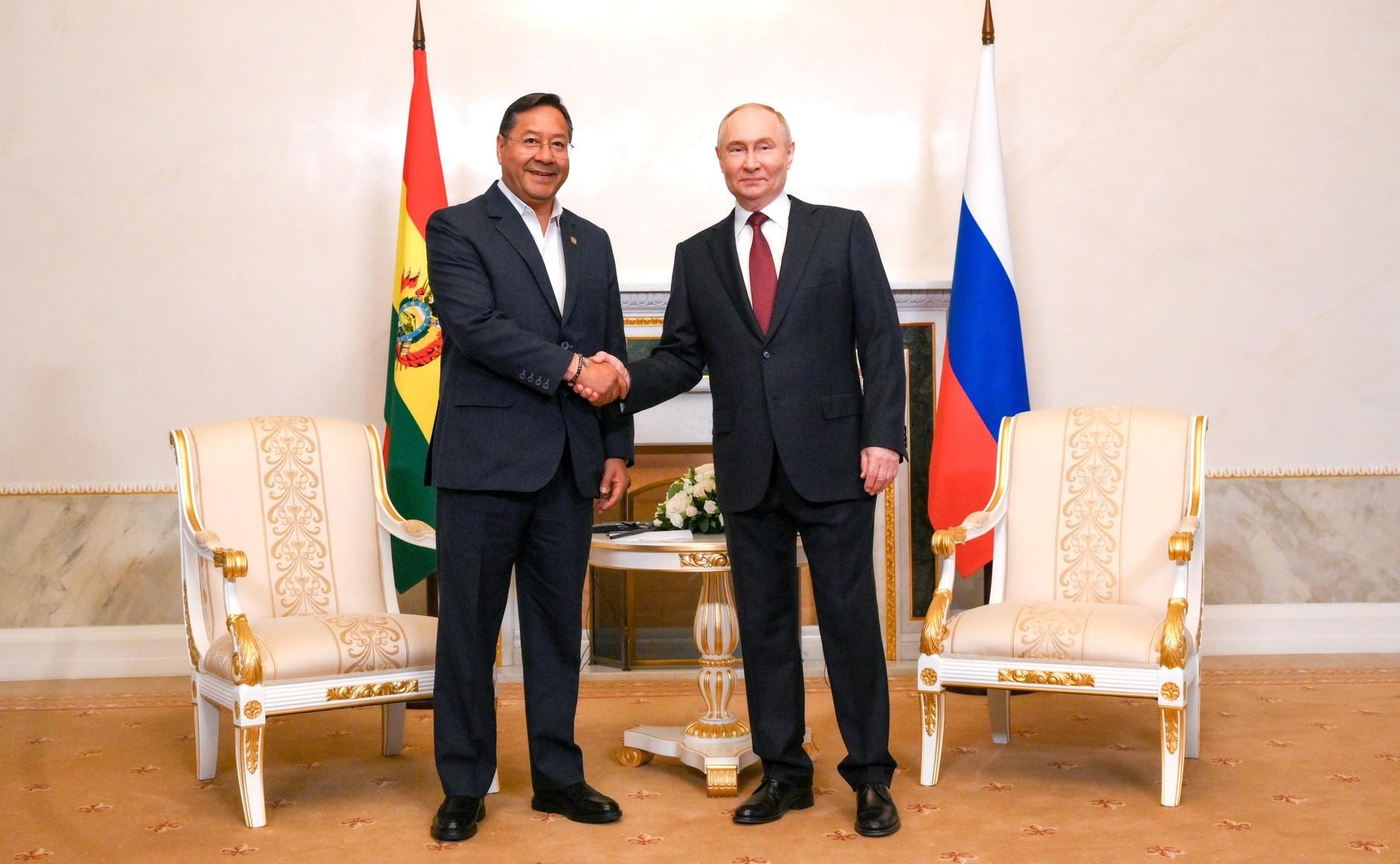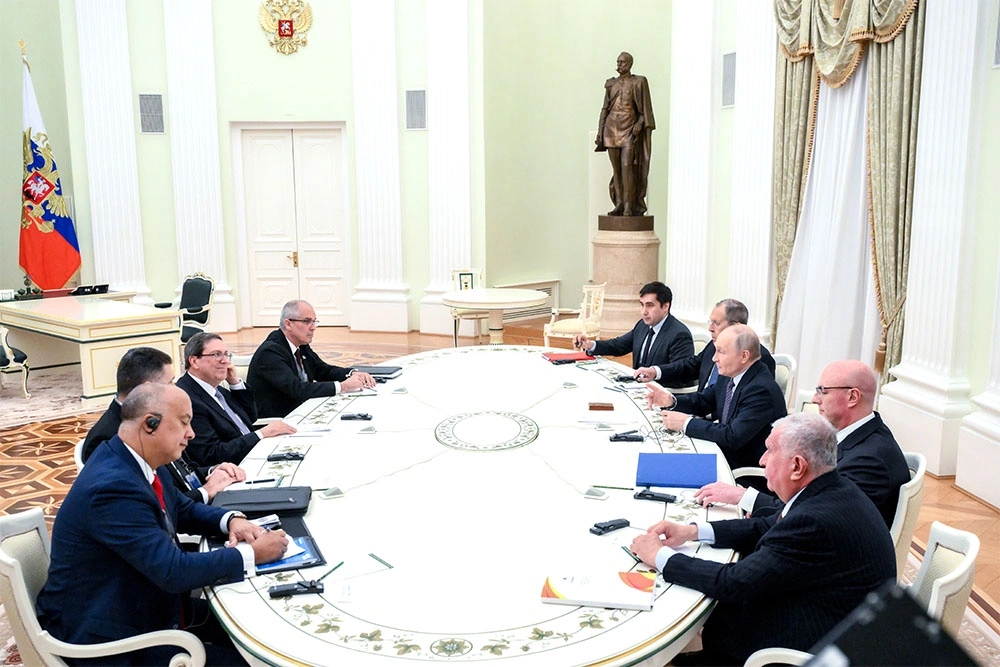
Russia’s Discreet Satisfaction Over Georgia’s Anaklia Port Debacle
Russia’s Discreet Satisfaction Over Georgia’s Anaklia Port Debacle
Since the collapse of the Union of Soviet Socialist Republics (USSR) in 1991, a perpetual high priority for the Russian Federation has been to maintain or extend Moscow’s influence over the other former Soviet republics as far as possible, particularly in the military sphere. This is especially notable in the Black Sea region, where post-Soviet states Ukraine and Georgia aspire to membership in the North Atlantic Treaty Organization (NATO) and have both been (or continue to be) involved in armed conflict with their former colonial overlord Russia. Russian concerns extend to transportation infrastructure, which has a dual-use capacity for both civilian and military needs. Accordingly, the recent collapse of the planned deep-water port in Anaklia, Georgia, is a source of deep satisfaction to Moscow, since the project’s suspension diminishes Georgian maritime potential for possible use by NATO should Tbilisi’s accession efforts eventually prove successful.
The idea of building a port in the village of Anaklia was first considered in the 1960s by Soviet specialists. The proposal reemerged after the breakup of the USSR, during the 1992–2003 presidency of Eduard Shevardnadze (Regnum, December 29, 2017). The project was then revived again by Shevardnadze’s successor, Mikheil Saakashvili, until politics and funding issues overwhelmed the government and forced it to put further planning on hold.
Despite the Anaklia Development Consortium (ADC) having concluded a construction contract in 2016 with the Georgian government to develop the Anaklia Deep-Sea Port, Georgia’s Regional Development and Infrastructure Minister Maiia Tskitishvili announced, on January 28, 2020, that the ADC’s role going forward was being suspended. According to Minister Tskitishvili, since the ADC had failed to comply with its contractual obligations to raise $120 million in capital or conclude a $400 million loan agreement with international fiscal institutions, the Georgian government, under what it termed its “unconditional right,” canceled the contract and would seek new investors (Vestnik Kavkaza, January 28, 2020)
Anaklia had become a contentious element between post-Soviet Georgia and the Russian Federation as early as 1994, in the aftermath of the Georgian-Abkhaz separatist conflict, after which Russian peacekeepers were stationed in the neighboring Abkhazian territory until July 2007 (Lenta.ru, July 13, 2007). Thirteen months later, a limited but violent five-day war erupted between Russia and Georgia, during which Georgia’s lack of a deep-water port for logistical resupply was highlighted. In an effort to boost the strategic rationale for Georgia’s future NATO membership, Tbilisi began more regularly touting the country’s transportation potential for the Alliance. And the planned Anaklia deep-sea port, particularly in conjunction with the Baku–Tbilisi–Kars (BTK) Railroad (completed in 2017), was to serve as a showpiece for that role.
Recent support from the United States government for the completion of the Anaklia port generated an overtly negative response from Moscow, which rightly feared that the project would amplify Georgian economic and political independence. At the same time, deep-water port facilities at Anaklia would be economically disadvantageous for Russia, since it (unlike Anap and Poti, Georgia’s shallow-draft Black Sea ports) would directly compete with Russia’s own Black Sea ports for cargo from Asia to Europe. Beyond those economic reservations, Russia also viewed the US-supported Anaklia as a geostrategic threat, since the deep-sea port near Abkhazia’s border could, in the future, host US and NATO warships (JAMnews, January 9, 2020).
On February 27, 2019, Russian Deputy Foreign Minister Grigorii Karasin met in Prague with the Georgian prime minister’s special representative, Zurab Abashidze, for a three-hour closed-door meeting. Such face-to-face Karsin-Abashidze talks substitute for the fact that Russia and Georgia have not had regular diplomatic relations since the August 2008 war. Following the February 2019 Prague meeting, Karasin commented on deepening Georgian-NATO relations and directly threatened Georgia: “Tbilisi needs to form an opinion—either it chooses an atmosphere of regional stability in the South Caucasus, or the Euro-Atlantic agenda.” Moscow’s envoy ominously added that if Georgia chose the second option, it could face the same “problems” as Ukraine did in 2014 (Kommersant, February 27, 2019).
Washington clearly noticed this intense pressure coming from the Kremlin. In June 2019, then–Georgian Prime Minister Mamuka Bakhtadze was invited to the United States. And on June 11, he joined his host, US Secretary of State Michael Pompeo, for a ten-year anniversary plenary meeting of the US-Georgia Strategic Partnership. Following this, Pompeo addressed the press corps: he praised a decade of deepening US-Georgian relations and then remarked, “Finally, I communicated our hope that Georgia completes the [Anaklia] port project. The project and others will enhance Georgia’s relationship with free economies and prevent Georgia from falling prey to Russian or Chinese economic influence. Those pretend friends do not have Georgia’s best interests at heart” (State.gov, June 11, 2019).
The Russian foreign ministry moved swiftly to address Pompeo’s remarks. Three days later, speaking to Georgian reporters in Prague, following further negotiations with Georgia’s Special Representative Abashidze, Russian Deputy Foreign Minister Karasin called Pompeo’s statement regarding the construction of a deep-sea port in Anaklia “unacceptable,” adding, “We are interested in Georgia, its economy and its development in social, cultural and other spheres. Georgia itself must decide what to do with the port of Anaklia. However, what has been said about Russia and China [regarding their influence in Georgia] for us is not at all in a suitable tone” (Newsgeorgia.ge, June 14, 2019).
The Anaklia port project, though of strategic economic and military importance to Georgia (see EDM, June 26, 2015), ultimately faltered due to domestic political infighting and economic corruption (see EDM, May 20, 2019 and June 18, 2019). While the Georgian government’s optimism about finding new investors for Anaklia is laudable, it seems unlikely in the short term, since the ADC was sacked for failing over more than three years to procure $520 million for the investment. Such sums are a significant amount, especially in the post-Soviet space, where unresolved conflicts between Russia and Georgia (and Russia and nearby Ukraine) are likely to make foreign international fiscal institutions ever more cautious.


